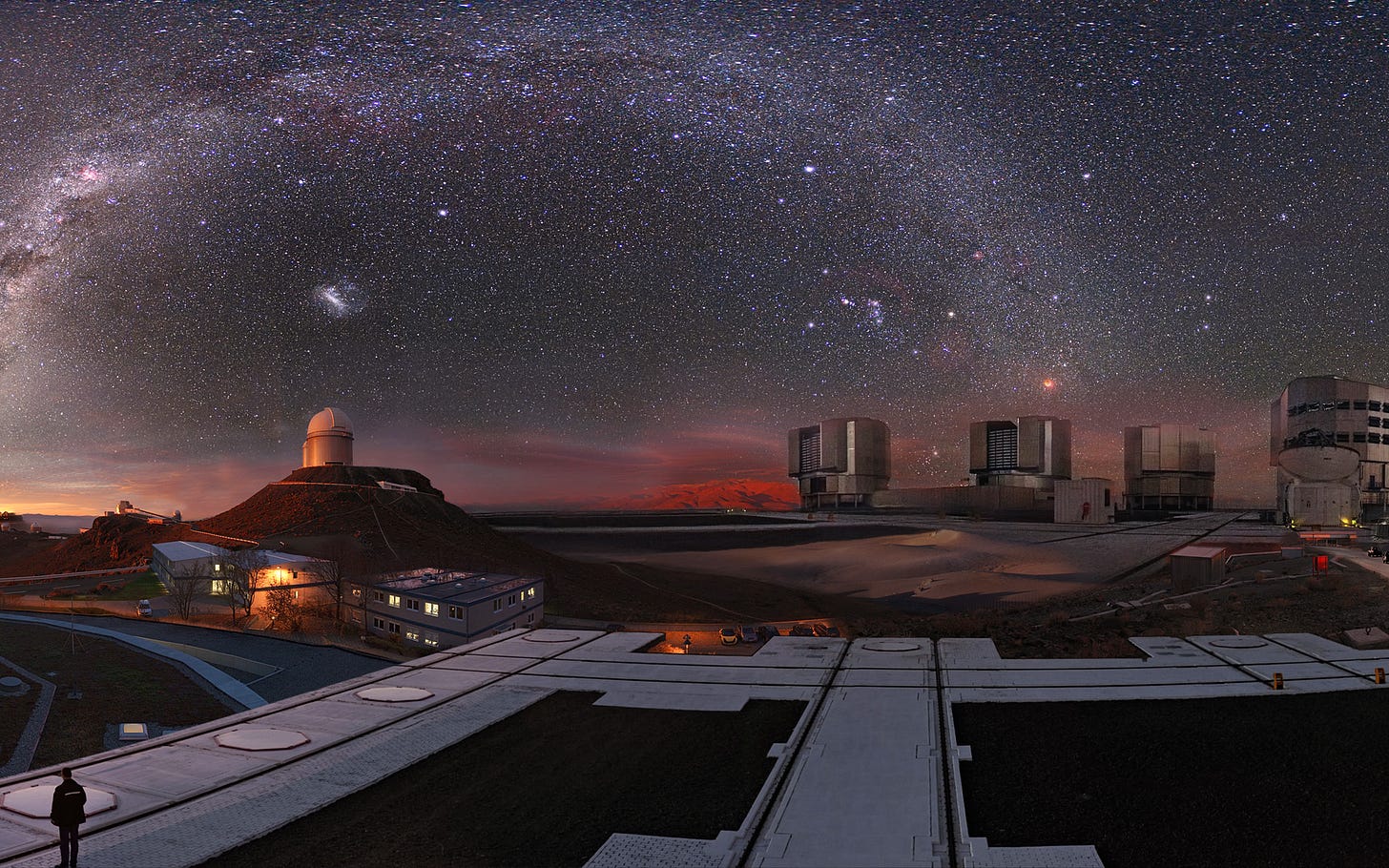Is an Evolutionary Transition to Non-Organic Intelligence Inevitable Across the Universe?
Weekend Edition
This weekend’s stories include “Artificially intelligent alien life may be stranger than we can imagine” and “The search for intelligent aliens explores new radio-frequency realms.”
Unfathomable? If alien life is artificially intelligent, it may be stranger than we can imagine, argues astrophysicist Lord Martin Rees for the BBC. "If an evolutionary transition to non-organic intelligence is inevitable across the Universe, our telescopes would be most unlikely to catch human-like intelligence in the sliver of time when it was still embodied in that form. " We can't assess, Rees adds, whether the "great silence" of the cosmos is simply their preference.
Search for intelligent aliens explores new radio-frequency realms, reports Keith Cooper for Space.com--The European Low Frequency Array of radio telescopes is performing Breakthrough Listen's first-ever search at megahertz radio frequencies. "Europe's Low Frequency Array, or LOFAR for short, is specially designed to conduct radio astronomy at these very frequencies."
If there is indeed life beyond Earth – will scientists be able to spot the unmistakable signature of extraterrestrial photosynthesis. explores The BBC--"Alien life could take many different forms, but one possibility has been captivating scientists since 1945: alien "plants". What would they look like? And how could we find them? explores The BBC--"The purple "halobacteria", which help to ensure the waters of Australia's Lake Hillier remain permanently Barbie-pink are also thought to hold clues to finding a certain kind of life on more distant worlds: alien vegetation.
Strange sounds recorded high in Earth's atmosphere have scientists baffled, reports Robert Lea for Space.com--A solar-powered balloon mission detected a repeating infrasound noise in the stratosphere. Scientists don't know what is making it.
What is the shape of space itself? asks Don Lincoln for Big Think--Einstein's theory of general relativity introduced the concept of space having a shape. So, what is the shape of space?
How did the Universe truly begin? asks Ethan Siegel for Big Think--"If you said 'with the Big Bang,' congratulations: that was our best answer as of ~1979. However, "It soon became clear that there were puzzles the Big Bang, on its own, couldn't explain, leading to a new theory that made incredible predictions that were later borne out: cosmic inflation. Yet cosmic inflation, as we understand it, couldn't have been the absolute beginning of everything."
Curated by The Galaxy Report Editorial Staff




